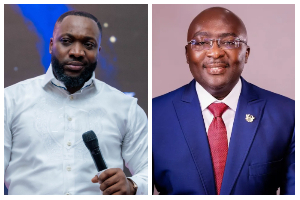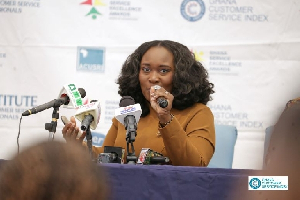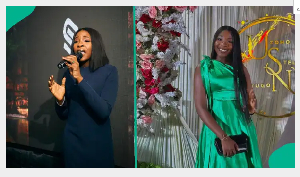- Harbinger of Healthy Synergy?
By Kwesi Atta Sakyi
8TH October, 2012
South–south cooperation in these hard global times is a conditio sine qua non and a desideratum. It is more wealth creating than the north-south economic asymmetry and disconnect, which has characterized trade between the more economically developed countries (MEDCs) and the less economically developed countries (LEDCs) for centuries. We in West Africa need to form a critical mass in order to become an economic superpower like China. Even though ECOWAS was formed in 1975, we are still still-born in achieving the noble objectives of the founding fathers such as General Yakubu Gowon, Lt Gen Ignatius Kutu Acheampong, General Gnassingbe Eyadema, among others.
Hans Joachim Mogernthau, father of international politics, observed long ago that countries always seek self- interest and self- preservation, but not unaware of supranational entities and power blocs. In the 80s, Nigeria pursued a foreign policy of concentric circles, which was in line with the postulate of Mogernthau. Collective survival has become more paramount now in this globalization era than in the post -colonial era when the nascent independent nations were discovering their identities and wallowing in their newly-found sovereignties. Now more than ever before, the reality is dawning on us that constellation and aggregation of states can create greater economies of scale than the sum of individual state efforts.
ECOWAS, as a trading bloc and a vehicle for regional integration in West Africa, has not achieved much because of the various internecine wars which rocked some countries such as Liberia, Sierra Leone, Cote d’Voire and Niger. Besides, it has been hard for some countries to shed their colonial apron strings and neurosis, cultural differences and suspicions of being dominated by some powerful states. Regional geopolitics stands in the way of progress. On the other hand, Comesa (Common Market for East and South Africa) seems to be overtaking ECOWAS in terms of the parameters for integration, which include political will, access to one another’s market, free movement of capital and labour across borders, joint interstate ventures, right of residence for citizens of member countries, adherence to commonly accepted macro-economic targets such as budget deficits, inflation, interest rates, among others.
The most advanced economic bloc, the EU, is currently going through hard times due to recession and debt crisis in Greece, Italy, Spain, Portugal (PIGS countries). In contrast, there is rapid economic growth in the BRICS countries, namely Brazil, Russia, India, China, and South Africa. In fact, some countries in Africa have posted robust economic growth, including Ghana, Angola, Botswana, Zambia, among others.
Currently, there are protocols on free movement of ECOWAS citizens, but this is causing some headaches such as the influx of people from the drought-stricken Sahel region into the wetter southern forest areas. From time immemorial, Ghana and Nigeria have enjoyed cordial and fraternal relationships as we all had the British as our colonial masters. Geographically, we are closer to Nigeria than to say Gambia or Sierra Leone. Before the notorious Aliens Compliance Order under Busia in 1969, towards the end of the Biafra War, many Nigerians had lived and worked in Ghana. Some were born and bred in Ghana.
Painfully, they were uprooted and sent packing, turning the clock back on the much-vaunted Pan-Africanism of patriarchs like Nkrumah, Nnamdi Azikiwe, Tafawa Balewa, Chief Enahoro, Ahmadu Bello, Chief Awolowo, among others. Sadly, the saga continued when myopic foreign policies led to the infamous Shehu Shagari-Ali Baba marching orders to Ghanaians in 1981, and again under Buhari-Idiagbon in 1983. All that is now history and belong to archives of forgotten things. It is, however, said that history teaches man that man never learns from history. So history is like a recurring decimal.
Since returning to Zambia from Ghana in August this year, I have been playing a gospel VCD album co-authored by Florence Obinim (Ghana) and Princess Ifeoma (Nigeria). Wow! What a melody! This is the kind of collaboration which brings the best out of us as Africans. Having lived in Nigeria for almost 11 years in the 80s, I know how richly Nigeria is endowed with natural and human resources. Talk of a variety of foods from the tropical rain forest or savannahs, and the rich yield of fish from their lakes, rivers, lagoons and oceans. I wonder why the Ghana-Nigeria Permanent Commission is not being revived to increase the volume of cross- border trade. In fact, we need to intensify our trade relationships through bilateral agreements, Ecowas notwithstanding.
Through such intensified cross -border collaborations, we can drive commerce and create synergies for job creation. Right now, Nigerian banks are making waves in Ghana, as they have found the Ghanaian economy irresistible for foreign direct investment. Some of these Nigerian Banks in Ghana include UBA, Access Bank, GT Bank, Zenith Bank, Fidelity Bank, First Atlantic Merchant Bank, Energy Bank, Intercontinental Bank, and Ecobank, among others. It is instructive to note that each country has its own peculiar comparative advantage which creates opportunities for trade and exchange of surpluses.
Areas of cooperation now can be found in the film industry, where Ghanaian and Nigeria artistes are jointly producing videos which have become household names in many parts of Africa. Names like Majid, Van Vicker, John Dumelo, Yvonne Nelson, Yvonne Okoro, Nkem Owoh, Nadia Buari, Jackie Appiah, Genevive Nnaji, Grace Johnson, among others. The northern Hausa States of Nigeria have for centuries depended on the supply of Kola nuts (goro) from the Ashanti Region of Ghana. Currently, there are many Nigerians who own properties in Accra and other cities of Ghana.
I remember in the 60s and 70s, when I was in college, I used many textbooks written by Nigerians such as Economics by Lawal, Government by Olaniyan, Adekunle Aromolaran, English Course Books (1-5) by Ogundipe & Tregido, History by Onwobiko, Ajayi, Dike, Novels by Wole Soyinka, Ola Rotimi, Christopher Okigbo, Flora Nwapa, Buchi Emecheta, Vincent Chukwuemeka Ike, Chinua Achebe, Cyprian Ekwensi, Amos Tutuola, Fagunwa, James Ene Henshaw, Kola Omotosho, Mathematics by Chike Obi, Principles of Education/Child Study by Udo Ema, among others. Some Ghanaian contemporaries included Adu Boahen/Addy/F.K. Buah/Agbodeka for history, Amo Djoleto Francis Selormey/Abruquah /Ama Ata Aidoo/Efua Sutherland/Asare Konadu/Ayi Kwei Armah/Meshach Asare/ Kobina Sakyi for novels, Abbiw Jackson/Kofi Nti for Mathematics, J.A Annobil/ CFC Grant for Fantse, Adu Ampomah/ Yarney Ewusi for Biology/Integrated science.
I can surmise or conjecture that very soon, Ghana and Nigeria will be running into each other’s arms as the global competition gets hot. We can collaboratively work for our mutual benefit in areas such as tertiary education, energy, technology, human resource training, engineering and agriculture. Let us explore the things which unite us and gloss over areas of cultural diversity which are given constants. Those collaborators driving Nollywood – Ghallywood movies, more grease to your elbow. Long live Ghana-Nigeria friendship. Viva Africa. Nigerians have capital in abundance and we have the skills, which they also have.
But let us apply comparative rather than absolute cost advantage. Being a country of 160 million people, Nigeria is a veritable foreign investor’s paradise with a huge domestic market. Nigeria has plentiful and skilled labour. The country has also a variety of natural resources, apart from its oil and gas. These include non-traditional exports of agricultural produce, arts and crafts. Nigerians are very resourceful, entrepreneurial and hardworking despite the usual negative bad eggs and black sheep who always tarnish the image of their beautiful country, with their ponzi and 419 schemes. There is no lack of talent in Nigeria in music, sports, and the arts, among others.
Ghana stands to gain a lot from a constructive engagement with our giant neighbour. Nigerians themselves know very well that we need them just as much as they need us. It is like a David and Jonathan friendship or that of Shakespeare’s Antonio and Bassanio in the Merchant of Venice. In the bible, we come across the strong bonds of friendship that developed between Jesse’s son David, and King Saul’s son, Jonathan. (1 Samuel 20: 1-42). There is also the Greek mythology of Damon and Pythias, which is said to symbolise the acme of trust and loyalty. There was also the story of Medusa and Athena, with the former being too boastful of her beauty and falling in love with herself (narcissism) and unfortunately, she earned the curse of the goddess Athena for her unweaning pride and boastfulness. She was turned into a hideous monster with hissing snakes on her head. She was banished to the ends of the earth to live with the gorgonised blind sisters. All those who set sight on Medusa were said to be petrified or they instantly turned into stone (Courtesy Leane Guenther) www.dltk-kids.com/world/greece/m-st. This mythology informs us not to fall in love with ourselves and be egocentric, because that sows the seeds of self-destruction and annihilation. In unity is strength, which late Dr Ephraim Amu’s song, Biako Ye Ye ooh informs us about.
I wish the friendship between Ghana and Nigeria to be consolidated and cemented by taking it to another level, instead of leaving it petrified or gorgonised in an agonizing manner. Let us apply the law of synergy that the whole is greater than the mere sum or aggregation of the parts. Readers will be pleased to note that my best friend at teacher training college was a Nigerian called Jonathan Yemi Akande, who was our first boy, with me following closely at his heels in second place. He was a mathematical genius, though I gave him value for his money, he being a couple of years older than me.
Contact: kwesiattasakyi449@mail.com
Opinions of Tuesday, 16 October 2012
Columnist: Sakyi, Kwesi Atta














